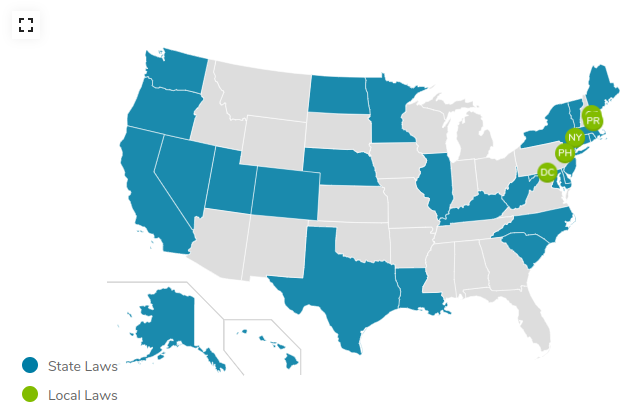 Pexels.com/Leah Kelley
Pexels.com/Leah Kelley
Tennessee lawmakers want to ensure pregnant workers get reasonable accommodations.
A bill reintroduced by Tennessee lawmakers Wednesday — one that would provide clarity for employers as it relates to pregnant workers and allow those workers to receive reasonable accommodations — is already gathering support from the business community across the state.
The Tennessee Pregnant Workers Fairness Act (HB 2708/SB 2520) is sponsored by Rep. Jim Coley (R-Bartlett) and Sen. Becky Duncan Massey (R-Knoxville), respectively.
“It is important that we meet the needs of our working women who are pregnant without causing undue burdens to our businesses,” Massey said.
The bill, which contains similar language to the federal Pregnant Workers Fairness Act bill introduced in the U.S. House of Representatives in the spring, would make it unlawful for employers to refuse to provide “reasonable accommodations for medical needs arising from pregnancy, childbirth, or related medical conditions” of an applicant or current employee.
However, if the employer believes that providing those accommodations would “impose undue hardship” on the business, then they are not required to allow those accommodations.
[pullquote-1]
The legislation also prohibits employers from requiring a pregnant employee to take leave if there are other reasonable accommodations that can be offered instead. Finally, the Act would make it unlawful for employers to take “adverse action against an employee” for requesting a reasonable accommodation.
Under the law, employees who have been “adversely affected” by an employer’s violation of these terms may bring civil action in court. That could prompt the court to issue back pay, compensatory damages, and other related financial relief.
The legislation has garnered support from several businesses across the state, as well as from the Chambers of Commerce for Memphis, Nashville, Knoxville, and Chattanooga. Two dozen businesses in the state, including Cafe Eclectic in Memphis, along with the four chambers sent a joint letter to the Tennessee General Assembly Thursday supporting the bill.
The current “patchwork of laws creates confusion and uncertainty,” the group wrote. The Pregnant Workers Fairness Act would establish “one clear standard, allowing us to address accommodation requests quickly and informally.”
In Tennessee, there is currently no law providing further protections for pregnant workers other than what is mandated by the federal Pregnancy Discrimination Act, which makes it illegal for an employer with 15 or more employees to treat pregnant workers unfairly. Currently, 27 states and four cities have passed their own form of legislation guaranteeing protection and accommodations for pregnant workers.
 A Better Balance
A Better Balance
States and cities that require accommodations for pregnant workers
“As concerned Tennessee business leaders, we urge you to help boost our state’s economy by passing the Tennessee Pregnant Workers Fairness Act,” the letter reads in part. “This important legislation will provide much-needed clarity to employers and help pregnant women who need reasonable accommodations, like a stool to sit on or extra bathroom breaks, to remain healthy and safe on the job, unless it would create an undue hardship for the business.”
The bill, which promotes healthier pregnancies and babies, will lead to lower health-care costs for employers and the state, the letter continues.
“Providing reasonable accommodations also keeps our valuable employees working and reduces turnover and training costs,” the letter said. “These types of accommodations are temporary and can typically be provided for a very low cost or no cost at all.”
The letter also points to Tennessee as ranking 41st in the nation for the number of women participating in the labor force.
“Given our historically low unemployment rate and tight labor market, it is important to ensure that everyone who is willing and able to work can do so,” the letter reads. “In order for our businesses and economy to continue to grow and prosper, we must make it easier for women to join and remain in the workforce.”